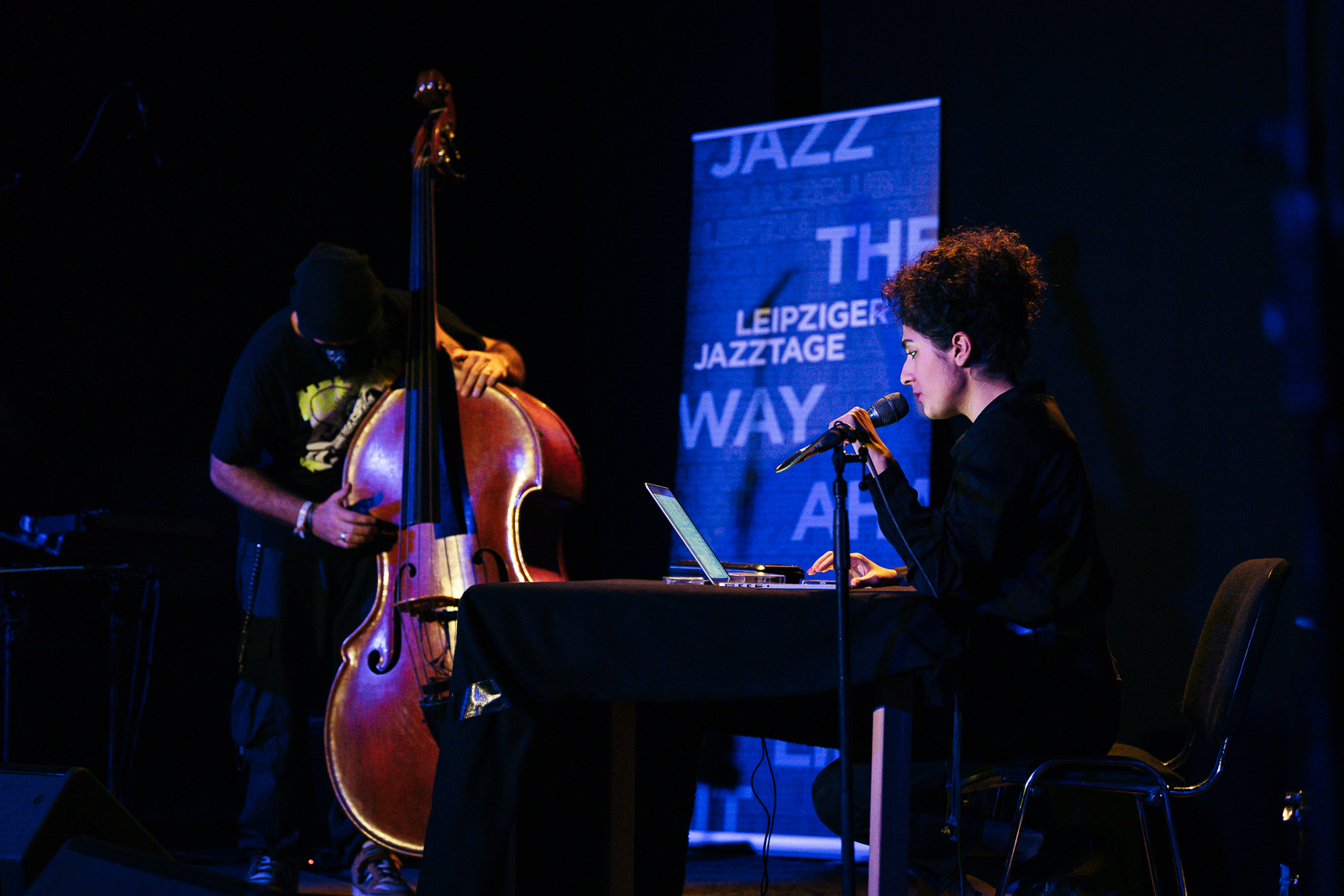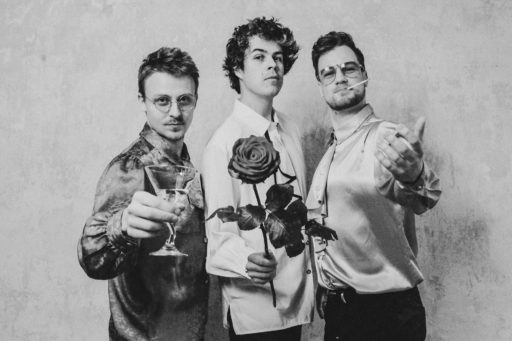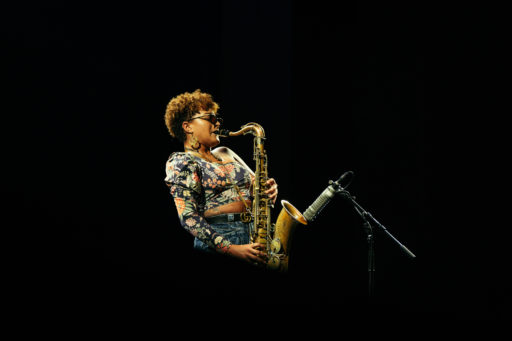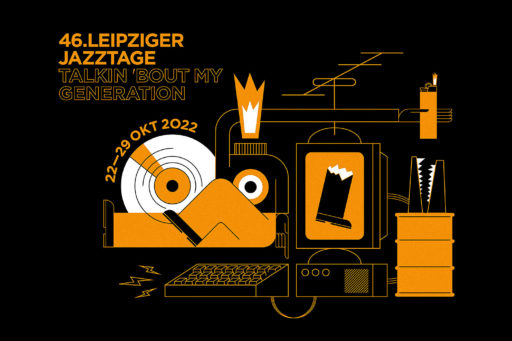Expose layers

Poet Tanasgol Sabbagh and bassist Reza Askari bring parts of their family history to the stage of the East Pasage Theater. A search, groping, remembering
Part one of the double concert on the second day of the festival self-consciously bears the character of a reading. Next to the double bass, a table at which the poet Tanasgol Sabbagh will take a seat. Her tools: the MacBook and a cassette recorder. At her side, Reza Askari will play. What connects the poet and the bassist is their Iranian origin and the poetry performance "Dard I Door" that fills the next 45 minutes.
What is presented are fragments that do not even try to form a whole. Rather, they are aware that memory - both individual and shared - cannot be a complete picture of the past. Sabbagh's text leaves room for the forgotten and also marks the places that are too painful for relatives to dig out of memory. From the laptop screen, the Amol-born author reads aloud alternately in German and English. In between, she inserts tapes. You can hear the warm rustle of the cassette and, for example, a piano piece, an argument between her mother and an aunt, the recording of a rehearsal with Askari.
Meanwhile, he accompanies the spoken word artist with the double bass. He lets its strings tremble indecisively at the beginning, plays dissonant tone sequences, then powerful harmonies again. In the middle of it, he leans on the instrument and embraces the wooden body as if it were supporting him and not the other way around. "When you hold the bass like that, do you find it easier to let go?" It's just one of many unanswered questions Sabbagh throws into the room that evening.
The two artists mirror each other, react to each other, look at each other and yet seem lonely. For where what is said on the one hand depicts the lifeworld of (post-)migrant families and gives them a voice - "four social housing units, two citizenships, one back-breaking job after another" - at other points it becomes extremely personal. Sabbagh weaves together her own experiences, such as saying goodbye to relatives in Iran and arriving at the first refugee shelter, as well as elements from Askari's biography and conversations with his father into a many-voiced dialogue.
That the Jazztage attracts comparatively older audiences - who, as the author of this text suspects, are not regular visitors - to the neighborhood theater vault on Eisenbahnstraße is, of course, welcome. That after this intimate performance numerous gentlemen with light white mop of hair neither clap nor otherwise react is again a pity.
Finally, Askari addresses the audience via microphone. He and Sabbagh are standing arm in arm. Of course, every time he is on stage, he plays for his sisters and brothers in Iran. A day earlier, tens of thousands of people in Berlin showed solidarity with their political struggle. Of course, there is only limited room for the current situation in this context. So all Askari can say is: "Women, life, freedom!"



